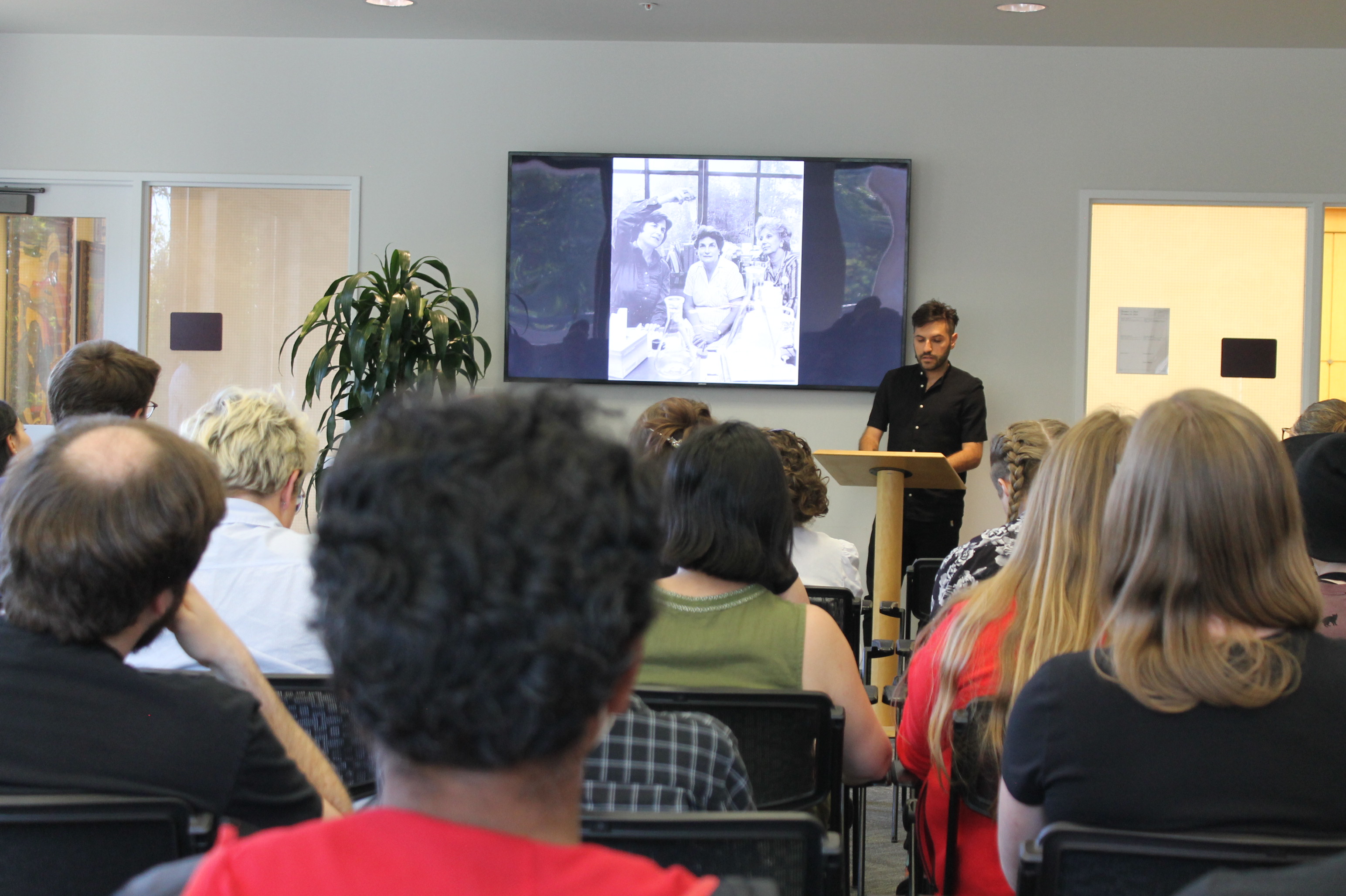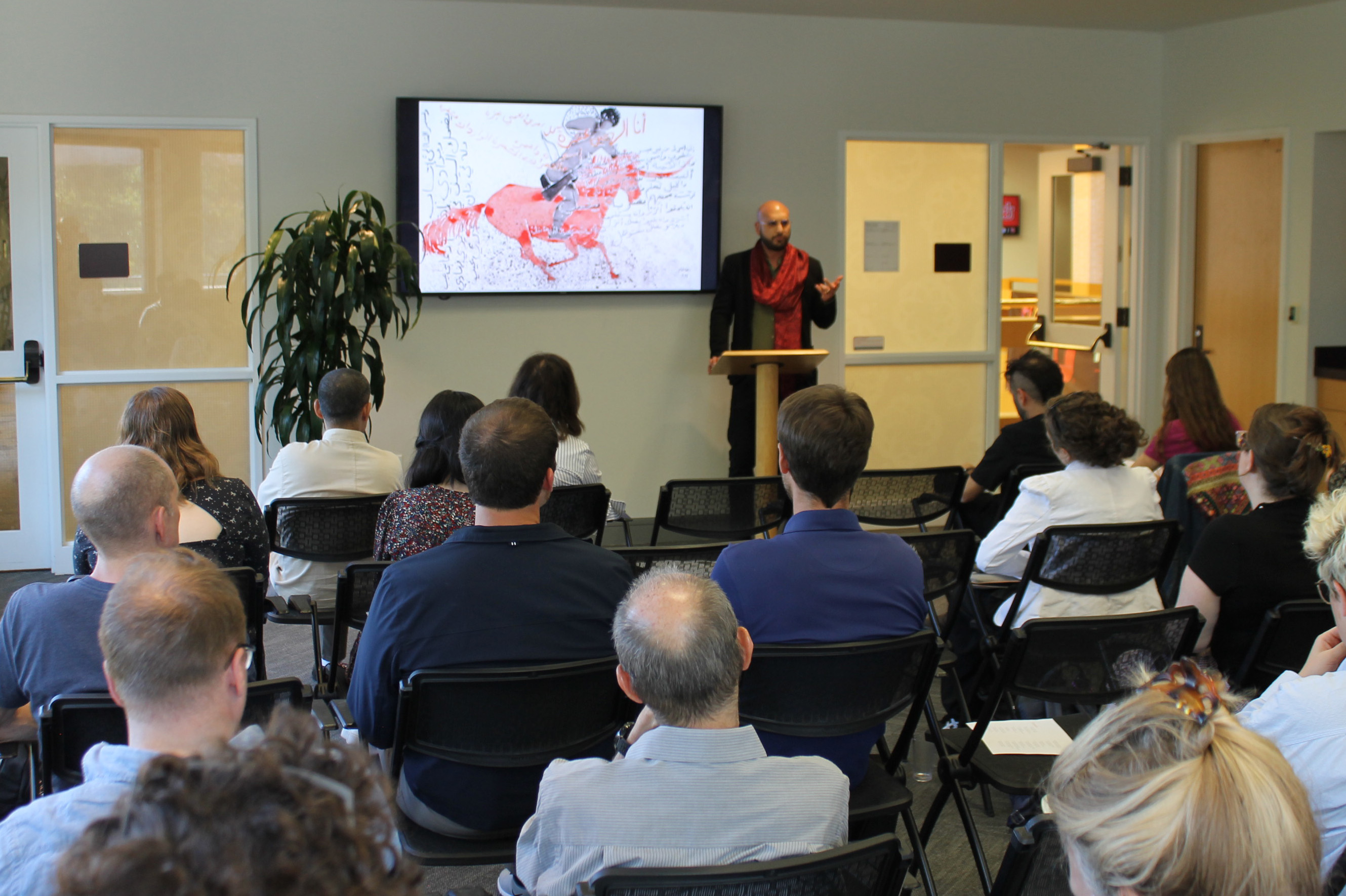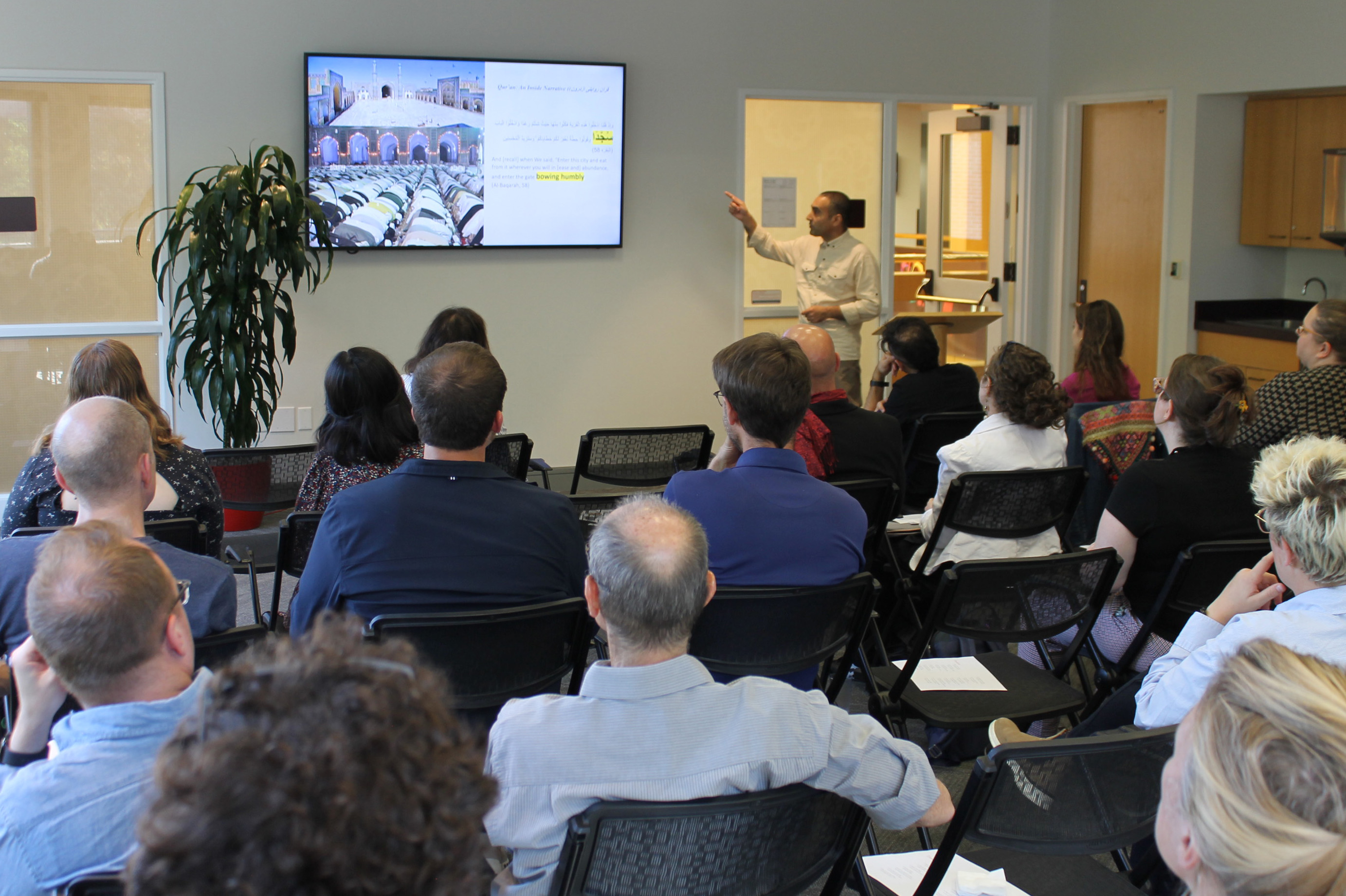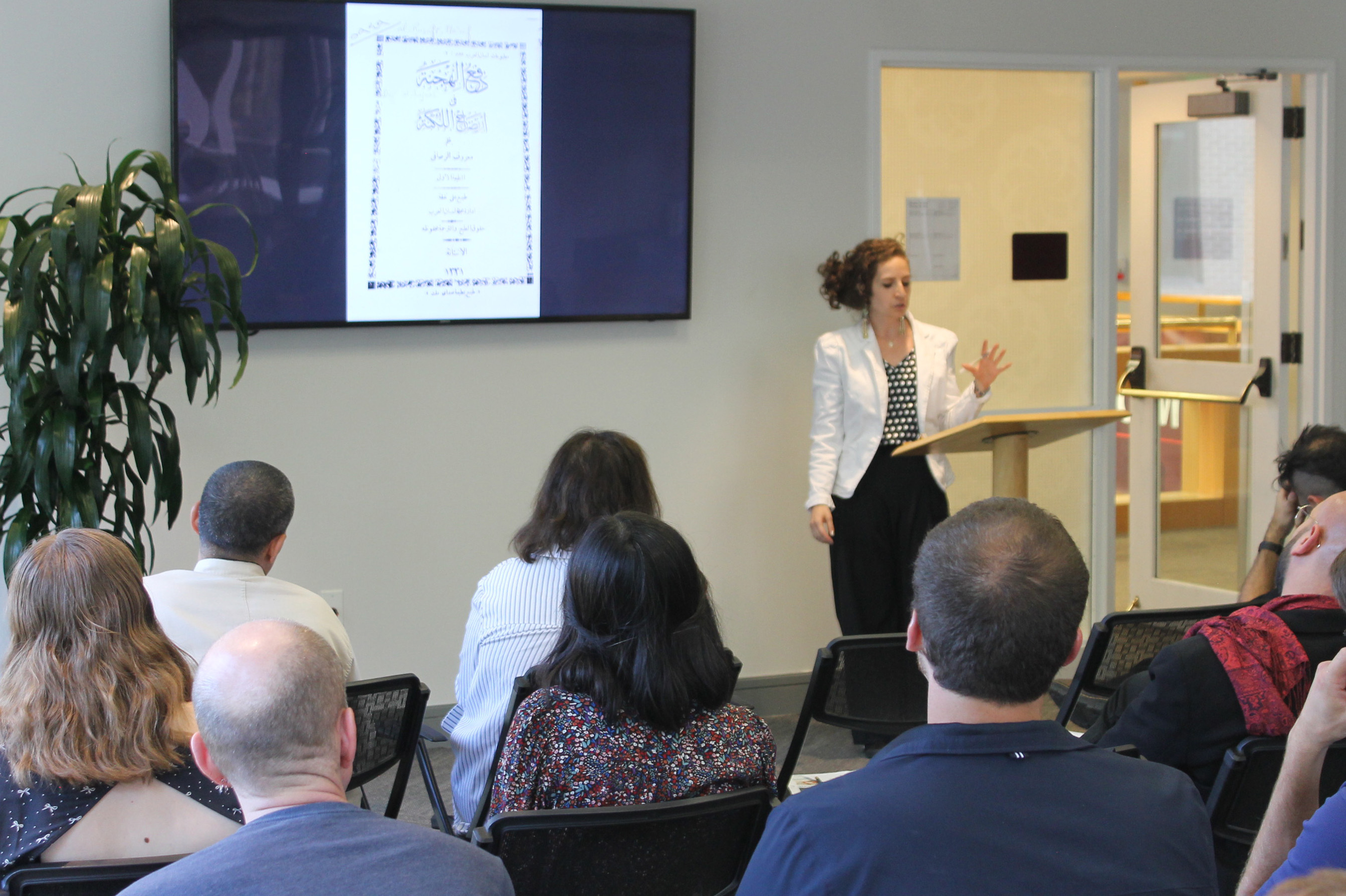Lightning Talks Explore Genetics, Islam, and Language Policies
Robert Carson, Associate Director, Tanner Humanities Center
October 2024

Alejo Stark presents "Repurposing Genetics." Photo Credit: John Boyack
The Lightning Talks presentations on October 14 featured the College of Humanities’ strengths in scholarship that reaches across languages, regions, and historical periods. In 15-minute presentations, each accompanied by a single image or artifact, new faculty and postdoctoral fellows shared their work with the larger University of Utah community.
Alejo Stark, Assistant Professor, Department of World Languages and Cultures
“Repurposing Genetics”
Stark’s work explores how science can be repurposed from a tool of hierarchy and repression to one of justice. This presentation focused on the contested uses of genetics in 20th-century Argentina. Mary-Claire King, a politically engaged geneticist whose findings improved the detection of breast cancer, brought her expertise to the “Abuelas” or Grandmothers of Plaza de Mayo. The Abuelas sought to find children abducted during the Argentine military dictatorship of 1976-1983 (a regime which had itself used genetic science to suppress political dissidents). Their work led to the National Genetic Data Bank and the National Commission for the Right to Identity, which has helped over 130 children reunite with their families. Their work continues today.

Rawad Wehbe presents "Inverting the Arabic Warsong." Photo Credit: John Boyack
Rawad Wehbe, Postdoctoral Fellow, Department of World Languages and Cultures
“Inverting the Arabic Warsong”
While usually celebrating valor, Arabic war poetry (hamasah) also shows the complexities of Islamization in the Arab world beginning in the 7th century CE. Wehbe’s analysis of the works of ʿAmr ibn Maʿdikarib—a poet who converted to Islam, apostatized, and then returned to Islam—shows how the genre’s conventions were challenged and revised to reflect the ambivalence of the poet’s conversion experience. In particular, the motif of the sword, unsheathed for conquest and then sheathed in peace, is inverted in the poet’s 16th war poem: “I more than make up for the departed / my value is more than the lot / All my friends are dead and, / like a bare sword, I remain” (Wehbe’s translation). ʿAmr’s work shows the endurance of traditional forms in Arabic poetry, even as their use changes during periods of profound historical change. (The image accompanying Wehbe’s talk is by the Lebanese artist Fatima Al Hajj.)

Naser Rahmani presents "Qur'an: An Inside Narrative." Photo Credit: John Boyack
Naser Rahmani, Research Associate, Department of World Languages and Cultures
“Qur’an: An Inside Narrative”
Rahmani’s talk offered a multilayered analysis of sajda (prostration) in the Qur’an, beginning with its linguistic roots in submission to supreme power. A full understanding of the word on multiple, simultaneous levels (linguistic, textual, historical) shows that sajda refers not only to the physical performance of submission in prayer, but also to attitudes of tolerance, respect, and humility in human civilization. Furthermore, Qur’anic thought elucidates how the term also has cosmological resonance, showing how celestial bodies and even plants demonstrate forms of sajda through their natural movements and deference to a larger order of peace and harmony. Rahmani concluded by connecting these historical and theoretical insights to current Middle East conflicts, advocating for a shift from external ritual to internal meaning.

Annie Greene presents "A Dictionary as a Polemical Tract: Errors or a Bilingual Fact?" Photo Credit: John Boyack
Annie Greene, Assistant Professor, Department of History
“A Dictionary as a Polemical Tract: Errors or Bilingual Fact?”
Greene examined a 1912 dictionary from Baghdad, Dafu al-Hajanah fi Irtidah al-Luknah, or “Rejection of Speaking Arabic Incorrectly,” written by the poet and scholar, Ma'ruf al-Rusafi. The work addressed the complex plurilingual situation in late Ottoman Iraq, where speakers navigated between literary and colloquial Arabic, Ottoman Turkish, and other languages. Importantly, al-Rusafi wasn't opposed to multilingualism as such. Rather, he worried about the ways in which linguistic hybridization might obstruct social and cultural progress. In this way, his polemical dictionary documents a moment of language anxiety about Arabic’s future, as Ottoman Turkish was simultaneously undergoing reforms to remove Arabic influences. Against this institutional backdrop, the Ottoman Empire’s languages were deeply intertwined in daily life in many areas, as his book shows. Greene’s talk illustrated how Al-Rusafi’s dictionary complicates received nationalist narratives about language and identity in the late Ottoman period.
The next Lightning Talks in the College of Humanities will be on Monday, January 27, 2:00–3:00pm, in the Tanner Humanities Center Jewel Box, CTIHB 143.
